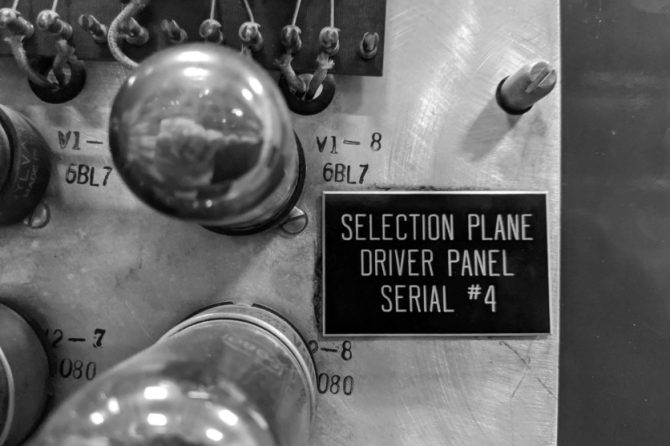Discussions of who’s a fan popped up this week on Facebook, Twitter, File 770 and, I am sure, other places.
From my perspective, it’s a very convoluted and difficult to discuss issue. Difficult at least in the sense of trying to get your point across without being misconstrued. This is largely because we have few words we can use to discuss the possible differences among fan types; not only are we working with a very limited number of words – Fan, fan, Trufan, Fakefan – everyone has a different experience with and definition for those words.
Further, there seems to be something of a generational divide in the usage and acceptance of those words, one that can be traced back to very different environments in which individuals became fans. At the very least, this conversation is taking place among people who became fans Before Mainstream Acceptance and people who became fans After Mainstream Acceptance (we can use them like B.C.E. and A.D. – The BMA era and the AMA era).
Personally, I believe that anyone who engages with genre, expresses interest and enjoyment and generally adheres to the loose concept that it’s ok to have “childlike” enthusiasms even when “adulting”, is on the fannish spectrum.
Further, I don’t assign value or worth based upon where along that spectrum an individual might be; the hook is set in them (and if personal experience is anything to go by, it will never be unhooked – even gafiates still engage surreptitiously) and there is every possibility that they can be drawn further along that spectrum as time and opportunity permit.
BMA fans (of which I am one) have several shared experiences: they grew up in a culture that belittled their interests; authority figures denigrated it and warned of dire future consequences (rot your brain); academia rejected it, parents often eliminated it from the household, schoolmates bullied. Early on there was even a police raid because those (fans) were just so weird and off-putting, they must be perverts, or commies, or maybe even commie-preverts*.
If you continued to be a fan despite all of these assaults, you’d been through a crucible and had earned something and learned something about yourself. Your committment to it had conviction, Your trials strengthened your belief that the mundane world was wrong and fandom was right; what you were interested in had value, and import and consequence. Humans will too walk on the Moon one day you troglodytes! I know because I’ve read Heinlein and Del Rey and Clarke. I’m not the only one who believes these things – see, fan clubs, conventions, fanzines. If I’m crazy, so’s the rest of ’em and we don’t care because it’s the right kind of crazy!
And on top of all of that discouragement, they, each individually, had to find fandom for themselves. They had to learn about it somehow, despite the lack of email, the internet, spotty distribution of the magazines, the absence of active recruitment and very little marketing outside of those who were already actively involved. They had to pull up their skirts and go searching for Fandom.
Which I think is what is largely responsible for the BMA idea that in order to be a fan, one must be active in their fandom. What, you went through that hell in order to sit around and do nothing? That’s kind of a waste, don’t ya think? Or Wow, this is really something. I’ve found my people. We must share this wonderful thing with others!
Passion got them to fandom. Passions must be shared in order to be fully expressed.
Parenthetically, I do think that BMA Fandom has a small, barely discernible chip on its shoulder. It gets little to no credit for having believed that the future we now inhabit (at least in broad strokes) was not only possible but could and would be realized**. It feels like it’s been carrying a torch for over 80 years and in beginning to pass it on, no one has deigned to say “Thanks for that, we appreciate your time in the trenches. Without you… We believe, and we’ll take it from here”.
BMA fans are frequently taken to task for so-called “gatekeeping”. I think that some of that, perhaps even a large part of it, is not gatekeeping in the minds of those fans so much as it is an expression of fierce loyalty and protectiveness over something that they paid hard currency to help create. They value certain things because they’ve learned that those things are important to the maintenance of fandom (as they know it) and are suspicious and critical when AMA fans don’t exhibit the same respect, knowledge of or, worst-case-scenario, take it upon themselves to redefine things that are already settled law and enshrined in the fannish encyclopedia.
AMA fans on the other hand would seem to have had it easy. Play one SF themed video game (something that did not exist in BMA times), watch one Marvel superhero film, binge watch one SF or Fantasy or adjacent streamer and “Hey – here’s your propeller beanie! You probably didn’t know it, but now you are a Fan! No, no, don’t worry about “why a propeller beanie?”, sometime in the future we may get around to exploring fan history, but it’s all about old crap and not all that important or interesting anyway. Yay You!”
But that’s not their experience. Not being an AMA fan, I can’t speak for them (and woe to me if I did!), but I can observe, and I can question and what I’ve gleaned is this: some AMA fans have also had to fight their way into fandom. They wanted to be part of the community but experienced rejection – they didn’t look like fans; their interests were focused on a broader expression of genre (read, their values were different). Many reject out of hand “all that has gone before” because they have no connection to it, it is associated with an era in which support and tacit approval for misogyny, homophobia, racism was all too evident. Fandom was created by a bunch of old white guys who excluded women and POCs, believed that there were only two genders and I don’t want my fandom to be tainted by any of that.
Historians of fandom can and have quibbled with those contentions (the founder of one of the first fan clubs was black; women were too represented early on (erased later); gay fans kept it to themselves and even though everyone knew, no one made any bones about it…), but offering excuses doesn’t change the fact that many AMA fans have experienced the same kind of dismissal that BMA fans got from mundanes.
Factually, all of that is true. What is also true is that fandom of old, for whatever reason, does not represent what they want fandom to be. Or, rather, it has a lot of baggage that needs to be dumped. (See the WFA’s H.P. Lovecraft award for a reference.) Clinging to that baggage is seen as endorsement of every time BMA fans did not live up to their expressed ideals. (I would argue that the ideals fandom expressed, pretty much from the beginning, are very much in line with the values that AMA fans express – largely progressive values of inclusiveness – even if those expressing them did not live up to them. We live in a country that has enshrined equality for all as its ideal and yet its done a poor job of living up to that. But that is a lengthy discussion to be had at another time.)
Fandom, as an entity, survives, at least in part, because of shared experiences. What we all seem to have in common is some form of rejection for who we are. (Beyond, of course, our love for genre, be it comics or movies or literature or games or cosplay or fanzines or conventions or…) It may be because of our interests, or skin color, gender, who we love, what we love. We can all agree that we don’t like it and, I think, we can all agree that it is not right.
And I think that if we all want to have a Fandom that represents “us”, we should remember what we share in common and that sharing ourselves and our interests, receiving what is shared with respect and courtesy is, at base, a definition of what it means to be a Fan.
*Not a typo. See Kubrick’s Dr. Strangelove.
** Early fans, or at least Donald Wollheim and his cohort, the Futurians, expressed the belief that science fiction literature and its supporters, the fans, could actively influence the shape the future would take and that it was their responsibility to do so.











I’m in the BMA crowd, but I came in just before the very first Star Trek conventions, and as a fan of both I heard from both sides. Too many people see these things as either/or, one or the other. But why can’t we be both? I’m an sf fan. I’m a Star Trek Fan, a Star Wars fan, etc. Sometimes I’m more of one than the other, but that doesn’t discount my feelings for all of them. BMA fandom has never done a good job of bringing people into our community and discussing our traditions (as opposed to gatekeeping). AMA fandom is making its own traditions. What was once called fanac is not called transformative. It doesn’t matter which word we use; it’s how we work within fandom and how we treat each other that’s important.